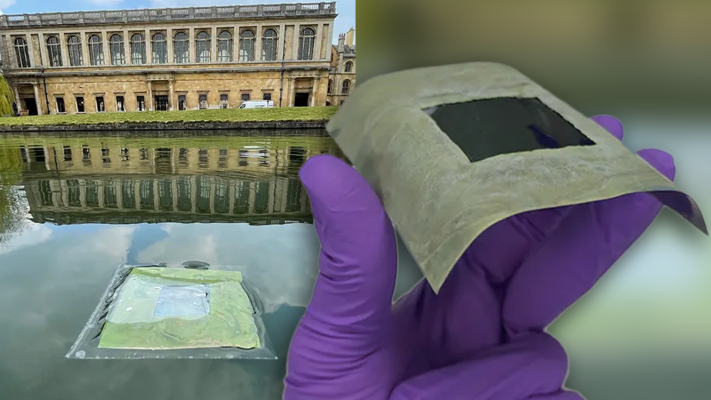The University of Cambridge researchers created ultra-thin, flexible gadgets inspired by photosynthesis, the mechanism through which plants turn sunlight into food. These low-cost, self-driving gadgets are light enough to float, they might one day be utilized to provide a sustainable alternative to gasoline while taking up no ground area.
Outdoor testing of the lightweight ‘artificial leaves’ revealed that they convert sunlight into fuels just like plant leaves. This is the first time that clean fuel has been created on water, and if the artificial leaves are scaled up, they might be utilized on dirty rivers, in ports, or even at sea, helping to lessen the global shipping industry’s dependency on fossil fuels.
Professor Erwin Reisner’s research group at Cambridge has been working for several years to address the challenge of decarbonizing the marine sector by producing sustainable alternatives to gasoline based on photosynthesis principles.
In 2019, they created an artificial leaf that converts sunlight, carbon dioxide, and water into syngas, a vital intermediary in the manufacture of numerous chemicals and medications.
The previous prototype produced fuel by combining two light absorbers with appropriate catalysts. However, it used thick glass substrates and moisture-resistant coatings, making the gadget large.
The latest version of the artificial leaf was protected against moisture damage by micrometre-thin, water-repellent carbon-based coatings. They were able to create a gadget that not only functions but also looks like a real leaf.
The new artificial leaves can divide water into hydrogen and oxygen and convert CO2 to syngas, according to tests. While more work is needed before they are suitable for commercial usage, the researchers claim this breakthrough opens up entirely new directions in their study.
Reference- Journal Nature, Cambridge University Twitter Handle, Cambridge University Media Outreach, Interesting Engineering
